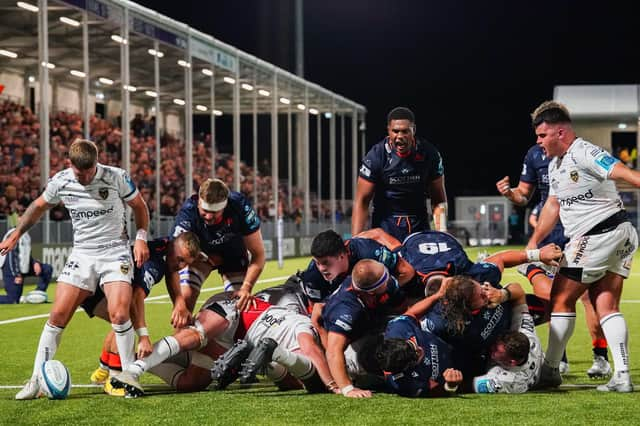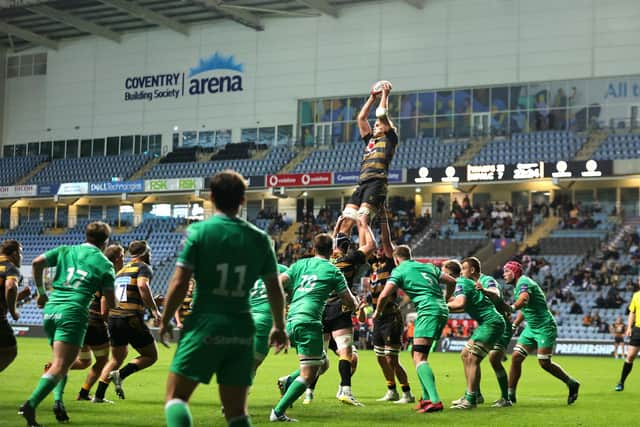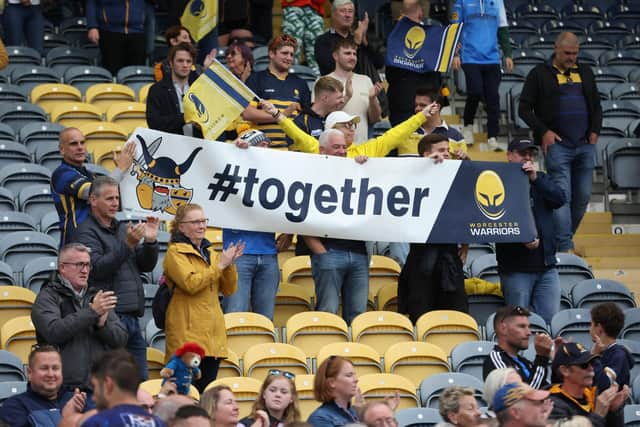Wasps, crowds, collisions: I reflect on rugby's move to professional and in hindsight, it was a mistake


Grounds are almost always full for Six Nations matches, and often near capacity for Autumn internationals too. The World Cup next year will be a roaring success. You can watch more rugby on TV, your computer or phone than was even barely imaginable 20 years ago. Top players earn princely salaries even though these don’t even begin to come close to what footballers may be paid. Viewed at from one angle, the future may seem so bright you will need sun-glasses to look at it.
Still, there is always the old word of warning: all that glisters is not gold. Indeed, the American company that provided me with that sun-glasses quote when it bought an electronics firm in Selkirk closed it down a couple of years later.
Advertisement
Hide AdAdvertisement
Hide AdSo looking south to the English Premiership, things look dismally dark. It seems all but certain that this weekend’s match will be Worcester’s last. The club is bust, its owners reviled. Well, Worcester is not a club with a great history; its support may have been fervent, but was always inadequate. You couldn’t say the club’s roots were deep. But what of Wasps, a club with a long and impressive history, twice European champions? There the administrators are being called in; there too the future is murky.


The club is the victim of that vaulting ambition that, as Shakespeare put it, “o’erleaps itself". Less than ten years ago, the club’s owners deserted their London base and their loyal supporters and relocated to Coventry where it became part of an ambitious property development. It seems, from press reports, that payments due and indeed overdue on bonds issued to fund the move are at the root of the present problems, which are sufficiently severe as to have had HMRC demanding lots of unpaid tax.
Looking at the mess Worcester and Wasps find themselves in, one experiences a rare burst of gratitude to the SRU. At least, as jealous proprietors, they haven’t handed our two pro clubs to investors promising a golden future, though they did of course make one attempt – happily unsuccessful – to offload Edinburgh.
The sad truth is that only the very top of the game attracts paying support, but its foundations are insecure. Rugby isn’t popular as football is. On an average weekend you could probably fit all the spectators at English Premiership Rugby matches into Old Trafford, Anfield or whatever Manchester City’s ground is now called. In Scotland football attendances are much lower, except at Ibrox and Celtic Park than they used to be. Nevertheless, home crowds for Edinburgh Rugby and Glasgow Warriors are smaller than those at Tynecastle or Pittodrie. Scottish football has fallen so far from its old high estate that every club in Scotland is now what is called “a selling club”, financial health depending on developing young players for the English market. If Glasgow and Edinburgh were free of the SRU, I guess there would soon be no home-based Scots in the national team.
Rugby has other problems, notably those relating to the consequences of frequent concussions, and though much is being done to alleviate these, the fact is that as a contact sport, eradication of the danger is impossible. Indeed, if you were to ask what is the most notable development of the game on the field in the professional era, the reply would surely be the remarkable development of handling skills by very powerful ball-carrying forwards, this notable development being also inescapably connected to the rise in the number of serious head injuries, for it is the greater number of legitimate tackles, not only illegal high and obviously dangerous ones that do damage. When I note that someone has made 20 tackles in a match, I think “what courage and commitment” and then “what are the likely long-term consequences of such commitment game after game?”


After a quarter of a century of professional rugby, I reflect that it has given us many wonderful and glorious moments and memories; but that, on balance, the move from the amateur to a professional game was a mistake. Nevertheless it’s what we have, what we still love, and must make the best possible of it.